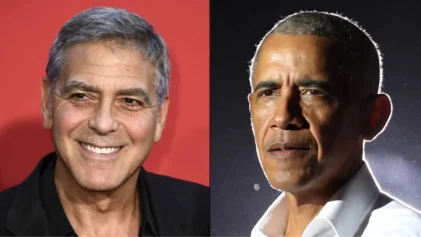With President Obama consistently beating Mitt Romney in most of the recent national opinion polls and also the polls in the swing states like Ohio, Florida and Virginia, Republicans are starting to complain loudly that the polls are skewed in Obama’s favor.
In conservatives circles, this skewing of the polls demonstrates once again the liberal bias of the media, which is banding together to give the public the impression that Romney is going to lose—at least according to the Republican conspiracists.
“They’re trying to wrap this up before the debates even start,” Rush Limbaugh said on his radio show this week. “I think they’re trying to get this election finished and in the can by suppressing your vote and depressing you so that you just don’t think there’s any reason to vote, that it’s hopeless.”
But in defending their methods, pollsters say that they typically poll a slightly higher number of Democrats than Republicans because more Americans identify themselves as Democrats rather than Republicans. While Republicans say that if the pollsters take an even number of Republicans and Democrats for their polls, then the election is a dead heat. But the pollsters say such a 50-50 split doesn’t reflect the makeup of the electorate, which is 35 percent Democrats, 28 percent Republicans, and 33 percent Independents.
“Party identification changes as political tides change,” Frank Newport, Gallup’s editor-in-chief, wrote this week in his response to the controversy. “General shifts in the political environment can affect party identification just as they can affect presidential job approval and results of the ‘Who are you going to vote for?’ question.”
According to Newport, Gallup asks voters agreeing to be surveyed the following: “In politics, as of today, do you consider yourself a Republican, a Democrat, or an independent?”
“Note that this question does not ask, ‘What was your party identification in November 2008?’ Nor does it ask, ‘Are you registered with one party or the other in your state?’” says Mr. Newport. “Our question uses the words ‘as of today’ and ‘consider.’ It is designed to measure fluidity in political self-identification.”
Pollsters say that over time, the conglomeration of the polling—even by more conservative pollsters like Fox and Rasmussen—since the conventions all show Obama ahead of Romney, so their snapshots are affirmed by both the big picture and the long-term trends.
“If I don’t focus on an individual poll here or there and look at the dynamic of the race, and the broad array of polls, it tells me that the president has a significant lead at this point,” Stuart Rothenberg, publisher of the non-partisan Rothenberg Political Report, told Reuters.
But one pollster said that it’s usually a bad sign when one side starts complaining about the polling methodology.
“I’ve been in politics long enough to know that the louder one side gets complaining about the polls, the more likely it is that this is the side that, in reality, actually is losing,” Erick Erickson, editor of the RedState blog, wrote this week.
And the polls also spark widespread criticism among people of color because they contend that the pollsters often underrepresent blacks and Latinos in their sample. The pollsters must try to predict how many blacks and Latinos will turn out for a given election when they decide on how many blacks and Latinos should be in the polling sample. Because most pollsters expect blacks and Latinos to show up to the polls at numbers below their percentage of the population of registered voters, the poll numbers usually change when the poll goes from “registered voters” to “likely” voters—in other words, because they don’t expect as many blacks to vote as are registered, the numbers for the Democrat will fall when the poll is of likely voters, compared to registered voters.
What all this means is that if the number of blacks and Latinos who show up to the polls on Nov. 6 are higher than the pollsters expect, Obama could win by even larger margins than the polls suggest.


